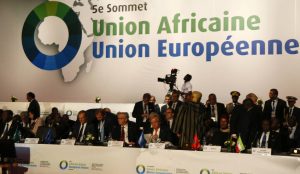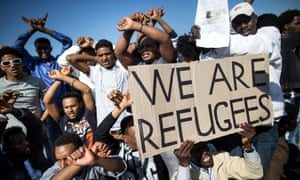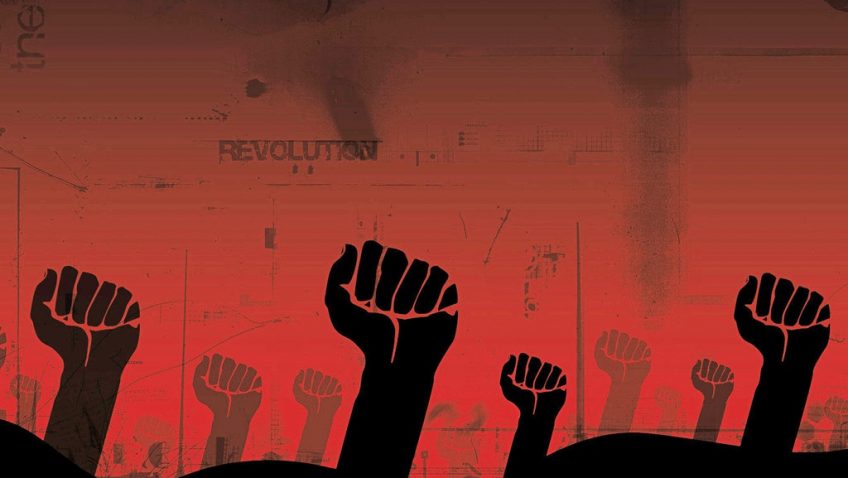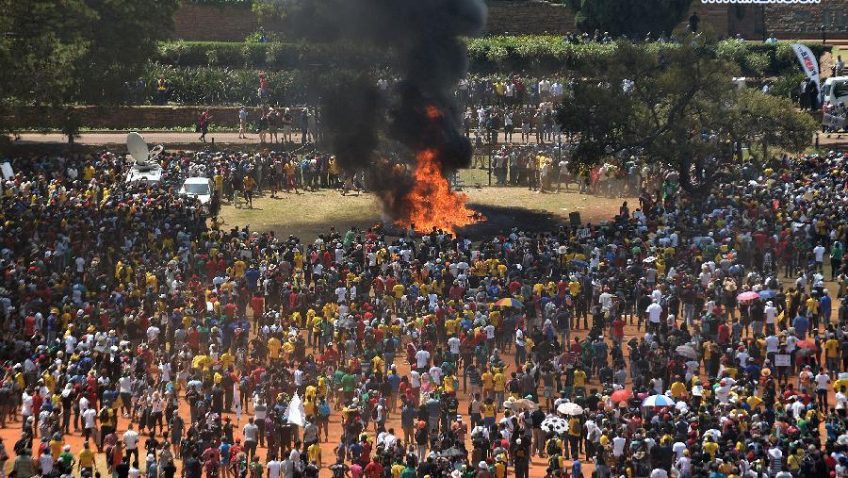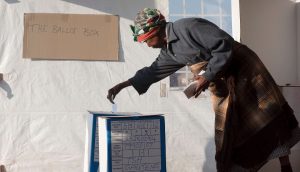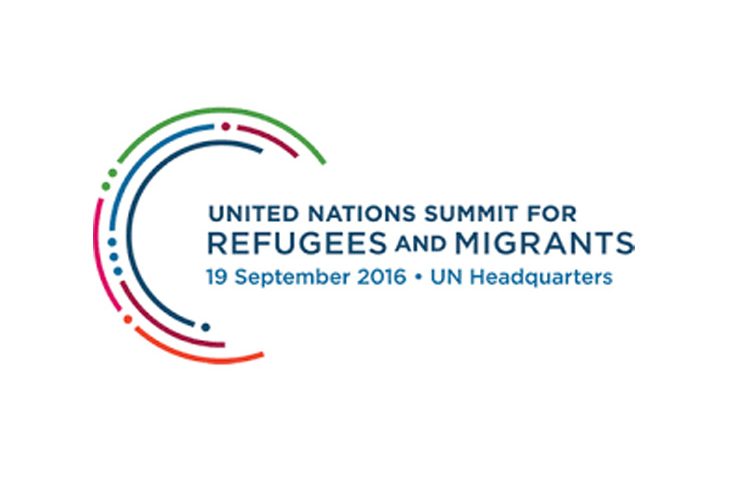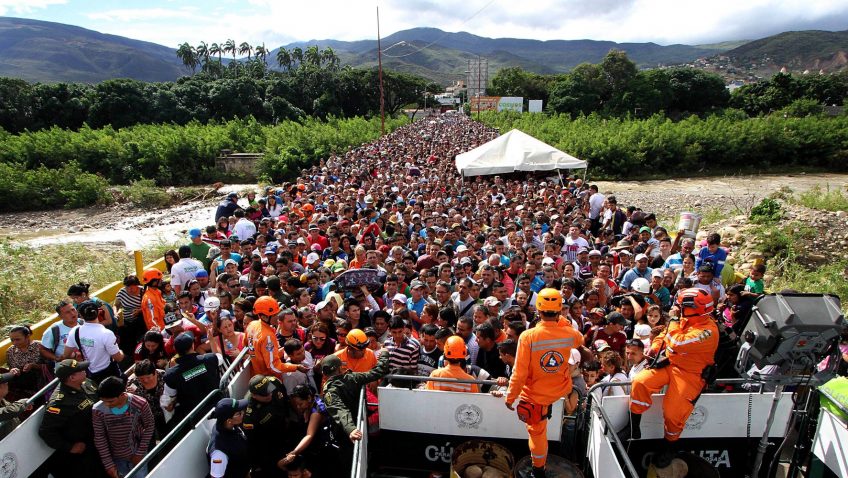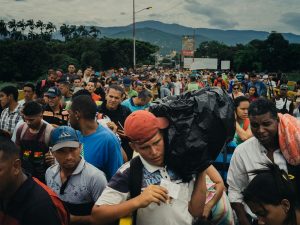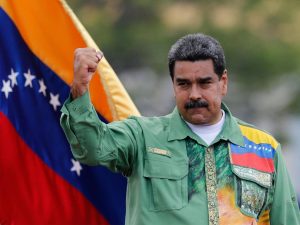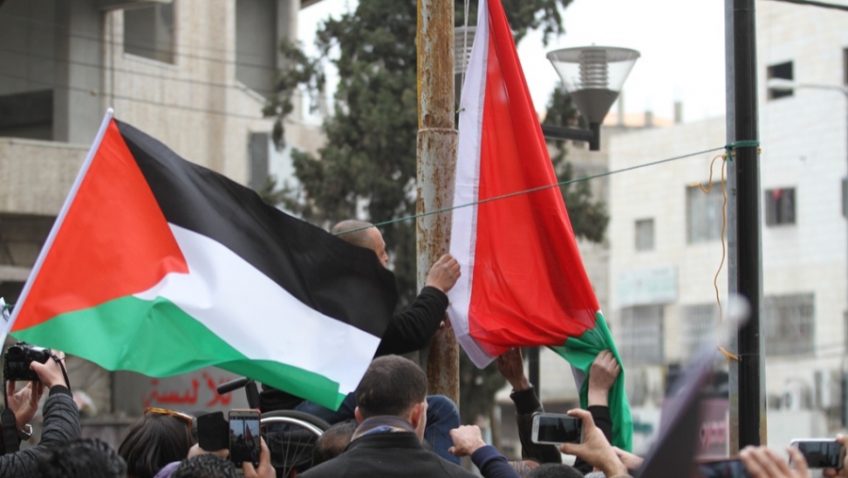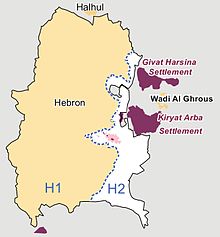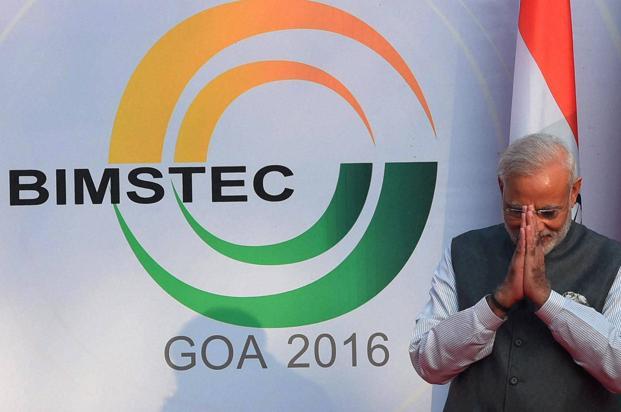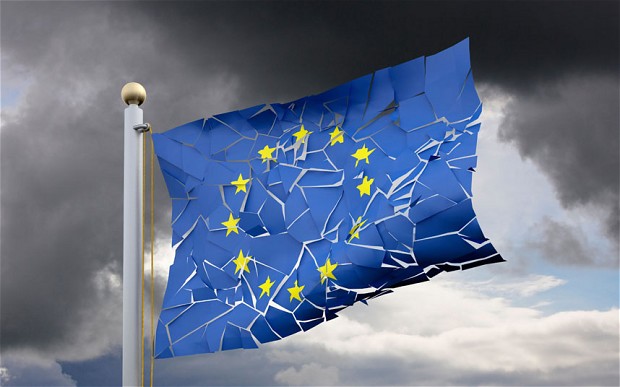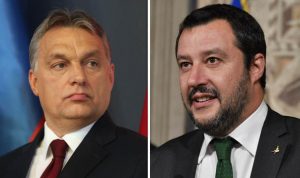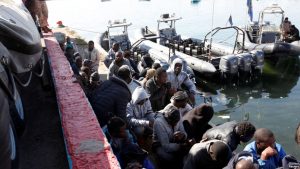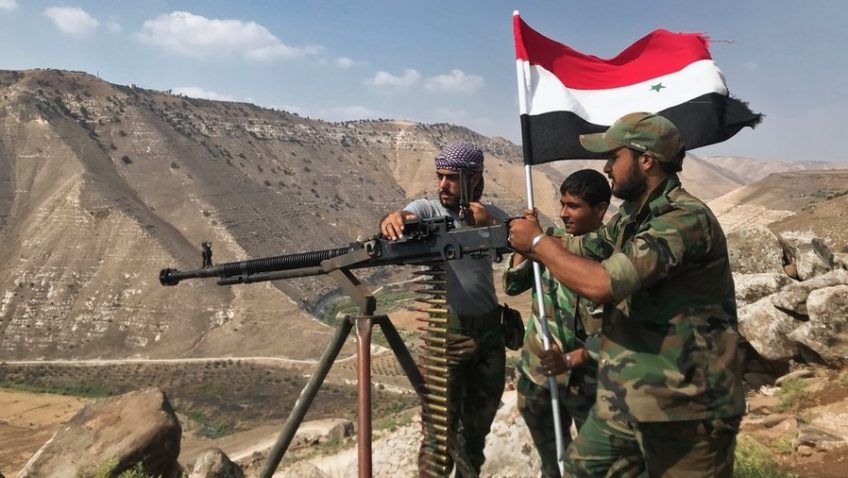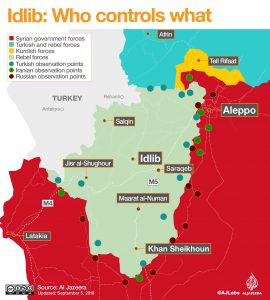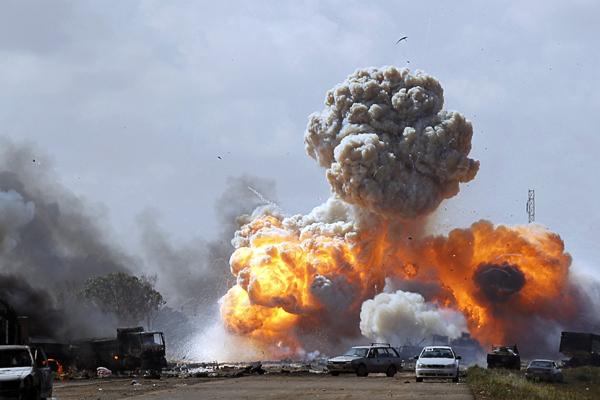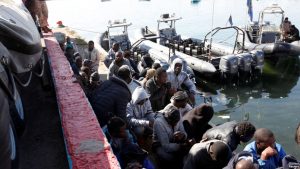YoungDiplomats decided to publish three speeches of an American diplomat, businessman and writer, Chas W. Freeman. They are high value speeches because a former American diplomat gives his feeling on what is diplomacy.
Remarks to the Watson Institute of International and Public Affairs
Ambassador Chas W. Freeman, Jr. (USFS, Ret.)
Senior Fellow, Watson Institute for International and Public Affairs, Brown University
Providence, Rhode Island, 17 April 2018
This is the third and last of three connected lectures on diplomatic doctrine. The series was preceded by an introductory presentation. This lecture deals with diplomacy as risk management. The first lecture described diplomacy as strategy; the second as tactics.
At its most basic level, diplomacy is the management of foreign relations to reduce risk to the nation while promoting its interests abroad. In this task, diplomacy’s success is measured more by what it precludes than by what it achieves. One can never prove that what didn’t happen would have happened if one had not done this or that. But, for the most part in foreign affairs, the fewer the surprises and the less the stress, the better.
The ideal outcome of diplomacy is the assurance of a life for the nation that is as tranquil and boring as residence in the suburbs. And, like suburban life, in its day-to-day manifestation, diplomacy involves harvesting flowers when they bloom and fruits and berries when they ripen, while laboring to keep the house presentable, the weeds down, the vermin under control, and the predators and vagrants off the property. If one neglects these tasks, one is criticized by those closest, regarded as fair prey by those at greater remove, and not taken seriously by much of anyone.
Viewed this way, the fundamental purpose of U.S. foreign policy is the maintenance of a peaceful international environment that leaves Americans free to enjoy the prosperity, justice, and civil liberties that enable our pursuit of happiness. This agenda motivated the multilateral systems of governance the United States created and relied upon after World War II – the Pax Americana. Secretary of Defense Mattis has called this “the greatest gift of the greatest generation.” Institutions like the United Nations. its specialized agencies, like the International Monetary Fund and the World Health Organization, and related organizations like the World Trade Organization sought to regulate specific aspects of international behavior, manage the global commons, provide frameworks for the resolution of international disputes, and organize collective responses to problems.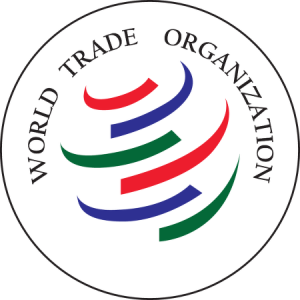
In the aggregate, these offspring of U.S. diplomacy established and sustained widely accepted norms of behavior for many decades. International law drew on consensus to express these norms as rules. To the extent they were accepted internationally, these rules constrained state actions that could damage the common interests of the society of nations the rules had brought into being. Despite its uneven performance, the Pax Americana assured a relatively high degree of predictability in world affairs that facilitated peaceful international interactions. It did so on the same philosophical basis as the rule of law in domestic affairs – a belief that rules matter and that process legitimizes outcomes rather than the other way around.
Today, that philosophy and its ethical foundations are under attack both at home and abroad. For the time being, at least, Washington has set aside the rule-bound international order and the market-driven economic interactions it enabled. The United States is discarding the multilateral strategic framework that it built to restrain the behavior of lesser states in the last half of the 20th century. In its place, the Trump administration is experimenting with neo-mercantilist theories that seem to have been crowd-sourced to right-wing talk radio. Washington seeks to maximize U.S. leverage over trading partners by dealing with them only on a bilateral basis. Trade and investment are increasingly government-managed and hence politicized rather than freely contracted between private buyers and sellers. So far, it must be said, bird-brained bilateralism is proving no substitute for the complex regulatory regimes it is replacing and the supply chains it is disrupting.
With the fading of previously agreed codes of conduct and the principle of PACTA SUNT SERVANDA [“agreements must be kept”], what could once be taken for granted in managing relations with other states must now be repetitiously renegotiated and affirmed bilaterally. But Washington has demoted diplomacy as a tool of American statecraft in favor of primary reliance on military and economic coercion. Escalating uncertainties are driving nations toward unrestrained unilateralism and disregard for international law. As this century began, the United States popularized contemptible practices like the assassination and abduction for questioning under torture of foreign opponents. A lengthening list of other countries – China, north Korea, Russia, and Turkey, to name a few – have now brazenly followed this bad example. More issues are being deferred as intractable, addressed ad hoc, or dealt with through the threat or use of force.
In this new world disorder, the need for diplomacy to tend fraying relationships is manifestly greater than ever. The Congress and public, as well as the U.S. military, sense this. They have resisted efforts by the Trump administration to slash budgets for peaceful international engagement by the U.S. Department of State and related agencies. Still, the American diplomatic imagination has not been so myopic and enervated since before World War II. Nor have U.S. investments in diplomacy, Americans’ expectations of their diplomats, or international trust of the United States been so low.
Diplomatic preparedness requires constant attention to other nations and their views. Showing that one’s government is interested in and understands what others think encourages them to be more receptive to one’s own ideas. Attentiveness to their needs, views, and doubts signals willingness to work together and cultivates willingness to cooperate in defending common interests. The regular nurturing and reaffirmation of relationships is what makes it possible to call on a network of friends in times of need. Responding politely and considerately – in the least offensive way one can – to others’ messages conveys respect as well as substance. It invites their sympathetic study of the logic, intent, and interests behind one’s own messages.
Constant diplomatic intercourse promotes stability and predictability. It inhibits inimical change, reducing the risk that amicable states will become adversaries or that adversaries will become enemies. And it provides situational awareness that reduces surprise and enables governments to respond intelligently and tactfully to trends and events.
All this may seem obvious. But it takes a sustained commitment by national leaders, public servants, and well-trained diplomats as well as reliable funding to carry it off. In the contemporary United States, none of these is now assured. The safety net provided by routine diplomacy as I have just described is increasingly neglected. The resulting disarray in American international relationships is shaking our alliances, eroding cooperation with our international partners, raising doubts about U.S. reliability, causing client states to seek new patrons, and diminishing deference to U.S. national interests by friends and foes alike. Increases in military spending demonstrate eagerness to enhance warfighting capabilities. But greater capacity to wreak havoc does nothing to rectify the doubts of foreign nations about American wisdom, reliability, and rapport in our conduct of relations with them.
U.S. military power is as yet without effective challenge except at the regional level. But, on its own, it is proving consistently incapable of producing outcomes that favor our national security. It is a truism that those who cannot live by their brawn or their wallets must live by their wits. Neither war nor the threat of war can restore America’s lost political primacy. Only an upgrade in American competence at formulating and implementing domestic and foreign policies, coupled with effective diplomacy in support of credible American leadership, can do that.
In recent years, Americans have become better known for our promiscuous use of force and our cynical disregard of international law than for our rectitude and aspirations for moral excellence. U.S. foreign policy has featured unprovoked invasions and armed attacks on foreign countries, violations of their sovereignty through drone warfare and aid to insurgents, assassinations and kidnappings, interrogation through torture, the extrajudicial execution of citizens as well foreigners, universal electronic eavesdropping, Islamophobia, the suspension of aid to refugees, xenophobic immigration policies, and withdrawal from previously agreed frameworks for collective action on issues of global concern, like climate change. This sociopathic record inspires only the enemies of the United States. It is not a platform that wins friends, influences people in our favor, or encourages them to view us as reliable.
Foreign perceptions of American society have also deteriorated. Many now see the United States as having evolved a transparently venal government of the people, by the plutocracy, for the plutocracy. They are very aware of the inequality of opportunity, unequal income distribution, and other injustices that now negate the soaring promises of our declaration of independence. They are dismayed by the gun massacres in our schools and public places and the police gun-downs of black Americans, as well as the denial and hypocrisy that our politicians and media habitually display in response to such events.
They know that America’s claims to be a free society are mocked by a prison population that is the highest per capita in the world – at least five times higher than that in notoriously undemocratic societies like China. They are sickened by reports of the bloated costs, gross inefficiencies, labor immobility, lack of insurance for the poor, and the high rates of maternal and infant mortality that result from the uniquely dysfunctional U.S. health care system. And they are not favorably impressed by the partisan political gridlock, fiscal follies, or private affluence and public squalor of contemporary America. They are put off by a society that no longer distinguishes fame from notoriety and appalled by the smug provincialism of the celebrity-strewn American establishment. Foreigners once admired American exceptionalism for its aspirations to moral excellence. Now it is a watchword for self-righteous complacency, thoughtless rejection of global norms of social justice, and unilateral announcements of policy that have not been preceded by consultation with presumed partners.
Leadership without followers is a non sequitur. (No pun intended.) Non-democratic models of governance are currently outperforming ours in a number of ways. To challenge them, Americans need to recognize our deficiencies, address them, up our performance, and return to managing risks to our enjoyment of freedom and prosperity by carrying out the elementary chores of routine diplomacy. Only this can restore the foreign respect for our system of government and its leadership that has been the foundation of our international influence.
Some diplomatic chores yield immediate gains. Others are long-term investments in garnering goodwill and building rapport – laying down strata of fossil friendship that can be mined in the future, or keeping warm memories of past cooperation suggestively alive. As current events demonstrate, when these chores are not done, the nation loses in both the short and the long term.
As an example of diplomatic work that generates near-term results, consider the help diplomats make available to businesses seeking to export their goods and services. Trade promotion is sometimes derided as “corporate welfare” by ideologues. But the support to commerce that diplomats offer can be essential to ease access to foreign markets for American companies and to enable them to deal effectively with foreign laws and regulations. Export promotion is in the national interest as well as that of the companies and their employees who earn a living from exports.
Part of any embassy’s mission is to help American businesses do due diligence on potential customers and partners and to introduce them to foreign officials and local business elites who can facilitate trade and investment. American ambassadors who have been properly trained to represent the United States see themselves as the chief U.S. trade promotion officers in the countries to which they are accredited. They and the officers from the departments of Agriculture, Commerce, Defense, State, and Treasury whom they lead do what they can to encourage their hosts to “buy American.” The exports this work supports sustain 10.5 million American jobs.
Diplomats are also central to the facilitation of international travel. Diplomats specializing in consular work issue passports and visas, help citizens who get in trouble abroad, and facilitate educational exchanges. They thus enable travel in both directions for education and tourism as well as trade and investment. There are now almost 1.1 million foreign students in the United States. The tuition they pay funds more than 450,000 jobs in the U.S. educational establishment and contributes just short of $37 billion to the U.S. economy. Meanwhile, foreign visitors spend about $170 billion annually on travel services in the United States, helping to support a domestic travel and tourism industry that directly employees over five million Americans and indirectly generates another eight million or more jobs. And, while they’re visiting, foreigners buy another $80 billion or so in goods and services.
Less tangibly and less visibly to the public, diplomatic interactions are a major element in government awareness of foreign thinking, planning, and actions that affect both national and particular interests in the United States. Reporting and analysis by U.S. diplomats overseas typically provide a substantial majority of the material that intelligence agency personnel charged with all-source analysis rely upon to brief policymakers in Washington. There is no substitute for ground truth, artfully captured and examined in light of U.S. interests, in making sufficient sense of events in foreign countries and cultures to enable officials to respond intelligently to these.
Sadly, even the best diplomatic and other reporting cannot compel Washington policymakers to accept inconvenient foreign realities that conflict with their political prejudices and delusions. As the American statesman, Chester Crocker has remarked, “surprise is what usually follows the collision of intelligence with an entrenched policy consensus.” From time to time, such surprises happen and Washington decision-makers seek to avoid blame for their errors of omission by finding scapegoats, as the fate of “old China hands,” among many others, illustrates. The declining role of diplomats in U.S. foreign relations and our increasing reliance on the U.S. military foreshadow future surprises from foreigners we haven’t bothered to understand. If one relies on overthrowing foreign governments rather than on dealing with them nonviolently, there is no need to bother understanding them or their motives for taking the positions they do.
A diplomatic presence adds value only to the extent that it enables face-to-face communication with the local authorities and their constituents. The cultivation of contacts in the host country is the key to collecting information relevant to statecraft. It is also the most effective means of accurately and persuasively conveying one’s government’s views to the host government. But the global metastasis of anti-American terrorism has led the United States to fear local contact and to build embassies that are heavily fortified and inaccessible to all but their employees.
The growing isolation of our diplomats impairs – even if it does not entirely eliminate – interaction with local officials and populations. It obstructs direct insights into the motivations driving popular opposition to America and makes the U.S. government dependent on information from other governments, some of which is bound to be self-interestedly manipulative. Cowering behind blast walls sends a message of fearfulness that bolsters terrorists’ confidence in their ability to intimidate the United States and reduce its influence abroad. It turns embassies into attractive nuisances. It makes it easier for those seeking to isolate the United States to do so. The principal beneficiaries of the cover-your-ass mentality that drives embassy fortification and isolation are government-contracted security specialists, architects, and construction companies, not the diplomats they have been tasked to protect.
According to both ancient tradition and international law, the protection of ambassadors and their entourages is the responsibility of host governments. Embassies should not be configured to serve as centers of imperial administration. The turn to resident diplomatic representatives that took place in the 16th century was not motivated by a desire to establish armed enclaves or citadels of extraterritorial power in foreign capitals, but to aid routine communication between sovereign states.
Fortifying diplomatic missions and arming them against attacks by the local citizenry implicitly relieves host governments from their responsibility to keep ambassadors and their entourages safe from harm. It helps them to evade domestic political responsibility for defending the embassies of unpopular foreign states from mobs It may, in fact, incentivize governments to look the other way as protesters assault such embassies.
The United States needs to reconsider policies that generate terrorism against it. But Americans should also be prepared to withdraw embassies from countries that cannot keep them safe. In most cases, there is nothing to gain by condoning the failure of such countries to meet international standards for the maintenance of diplomatic relations and shielding them from the consequences of their irresponsibility.
The physical security of diplomats is important, but information security is truly vital to their work. Honest discourse on sensitive matters requires reliable assurances of confidentiality, whether it is to lawyers’ clients, physicians’ patients, or diplomats’ interlocutors. In democracies, the people have a right to know what policies their government is following and why. They have no legitimate interest in the sources and methods by which their government gains information from foreigners or influences their decisions. Analysis should be disclosed, but the details of diplomatic conversations and reporting on the views of foreign governments and individuals should be privileged.
Breaches of professional privilege degrade the candor and reduce the effectiveness of exchanges of information. Diplomacy consists of professionally privileged exchanges. The indiscriminate release by Wiki leaks of classified cables reporting confidential exchanges between diplomats and their foreign sources degraded U.S. diplomatic intelligence collection capabilities.
The inclusion in the Wiki leaks release of diplomatic evaluations of foreign leaders’ character and political performance titillated and impressed the public with the notably high quality of American diplomatic reporting and analysis. But it did grave damage to U.S. relations with a number of countries, ruined productive relationships with key sources of information, resulted in the expulsion of some American diplomats, and embittered previously cooperative foreign leaders against the United States and the official Americans with whom they had been meeting.
Fear of future leaks has caused American diplomats to report less honestly and fully to Washington than before. The same concerns about information security, compounded by self-centered amateurs playing at diplomacy with an eye on politics back home, have led to meetings with no note-takers or to the bowdlerizing of the records of American officials’ meetings with foreign officials. Nobody has gained from the corruption of diplomatic record-keeping by American officials, except perhaps the foreign competitors of the United States. Unlike us, they have not corrupted their institutional memories and are armed with accurate accounts of their interactions with American leaders. When future disputes arise over what was or wasn’t said in meetings, they will have the advantage. (By the way, what did we tell Mr. Gorbachev about NATO expansion?)
The focus of diplomacy is the ruling authorities – those with the power to make decisions for their polities. But all political systems defer to public opinion to one extent or another. Democratic governments are subject to popular supervision through elections. The democratization of politics in Europe a century or more ago, led to widening recognition of the importance of public diplomacy. It also widened the interaction of legislators with foreigners. Technology then allowed them to travel abroad, allegedly on public business but often for personal enjoyment. Not to worry. Exposure to realities outside the Beltway bubble improves minds.
Foreign deference to American power and support from American embassies have long assured VIP treatment and high-level access for our representatives by foreign officials. But congressional travel abroad creates ill will when – as is all too often the case – members of the House and Senate offer no welcome in Washington to the very foreign officials who had pampered them on their own trips abroad. As foreign deference to the United States continues to ebb, Congress needs to consider how to reciprocate foreign hospitality to its members and staff. The United States would be strengthened were congresscritters to make a serious effort to improve their own poor reputation abroad. As U.S. officials, they too have a responsibility to contribute to U.S. public diplomacy.
Public diplomacy is the patriotic art of making one’s country appear to have the better cause. It is designed to explain policies and institutions in terms that are persuasive to audiences in foreign cultures. During the Cold War, this was the task of the U.S. Information Agency (USIA). Created in 1953, it was euthanized in 1999, when the Clinton administration determined that history had ended, CNN was on the job, and new private sector outlets like Fox News were about to ensure “fair and balanced” American coverage of notable events.
Unfortunately, the extension of these media to foreign audiences has lowered the reputation of the United States abroad by directly exposing foreigners to the global yokelism of American celebrities and the ethnocentric prejudices of American popular culture. USIA’s functions were severely downsized, then transferred to the Department of State, which has little or no credibility at home, still less abroad. There is now no significant corrective for the spillover to foreign audiences of our partisan media’s politically motivated distortions of American policies and realities. Presidential tweets have just exacerbated this problem. With relative U.S. influence on foreign elites in decline, a future, more orderly administration will almost certainly want to restore the capacity of the United States to disseminate reliable information on U.S. policy and introduce the higher elements of American culture to audiences overseas. The secretary of state is probably the right cabinet officer to oversee this function, but the department of State may not be the best place to house it.
A future administration will also want to reconsider the utility of foreign aid – the transfer to other countries of official capital, goods, or services – as a tool of U.S. foreign policy. Originally conceived to promote economic development, build markets, and modernize economic governance in Europe’s colonies overseas, foreign assistance programs entered a new stage with the Marshall Plan. From 1948 through 1951, the United States transferred some $13 billion (about $150 billion in today’s dollars), mostly in the form of grants, to seventeen Western and Southern European countries. The program succeeded in helping them to restore industrial and agricultural production, establish financial stability, and expand trade.
In the Cold War, the United States used foreign aid as a diplomatic tool to foster political alliances and secure strategic advantages, withholding or withdrawing aid from those who seemed too close to the Soviet Union. Washington leveraged multilateral programs like those of the World Bank and regional development banks, building on the donations of other wealthy capitalist nations to spread Western economic norms to developing economies. But development specialists were increasingly marginalized as aid was bent to the service of military interventions and other political projects. U.S. foreign assistance peaked during the Vietnam War.
Since the end of the Cold War, U.S. foreign aid has been used to fund pacification and anti-narcotics programs as well as to support long-term development, subsidize client states, counter pandemics, provide disaster relief, and underwrite foreign military modernization programs. Over time the proportions spent on these functions have shifted. Only seven percent now goes to bilateral programs aimed at long-term economic development. Global health programs get about 24 percent, a good investment, given the threat of pandemics. Israel and those Arab neighbors who have made peace with it get 20 percent. Somewhat over 17 percent goes to foreign militaries and 13 percent to stabilizing countries where the U.S. armed forces are engaged in combat. As the civilian aid budget has shrunk, the armed forces have drawn on the defense budget to fund their own foreign assistance activities.
Military disbursements aside, annual U.S. expenditures on foreign aid now come to about $150 per American or less than two-tenths of one percent (0.17%) of GDP. Per capita, the United States ranks 20th among donors in the 28-member OECD.[1] The ranks of U.S. experts on development policy, program implementation, and the facilitation of socioeconomic change are rapidly thinning out. In practice, despite the size of the U.S. economy, Washington no longer plays the leading international role in economic development activities.
Lessening investment in foreign assistance is not without adverse consequences for American influence. As one example, China’s “Belt and Road Initiative” is encouraging infrastructure construction and the harmonization of trade and investment regimes throughout the Eurasian supercontinent. Unless Americans find a way to make ourselves relevant to complementary or competing projects in that space, we will be without influence in a huge geoeconomic zone that is central to the global economy of the future. At present, our government no longer has either the institutional capacity or the funds to respond to this or similar challenges.
Abraham Lincoln asked, “Do I not destroy my enemies when I make them my friends?” Diplomacy is about the cultivation and exploitation of friendship with foreign states and peoples. There is a pertinent Arab saying that: “a friend who does not help you is no better than an enemy who does you no harm.” Friendship rests on empathy and its demonstration in supportive behavior.
As our military commanders have discovered, quite aside from cooperation in building physical and institutional infrastructure, a little “walking-around money” helps to win friends and influence people. In diplomacy, including the parliamentary diplomacy of international organizations like the United Nations, the spontaneous return of a favor, a ration of flattery, a gesture of respect, an apparently sincere effort to consult, a reassuring glance, a respectful retort, a comforting silence, and reliable follow-up to implied as well as explicit undertakings can be worth a lot. Vote-trading and mutual back-scratching cement habits of cooperation at the UN. The same is true in alliance management, a key diplomatic skill at which Americans once excelled.
Diplomacy is relationship management as contact sport. Its conduct depends on the talents and training of the men and women who engage in it. Diplomats learn to see transactions as part of a process that defines relationships. Every negotiation of a specific issue contributes to judgments of character and elements of trust that affect future interactions. Sharp practices earn long-term distaste.
The wisest diplomats cultivate a reputation for integrity, fairness, and determination to follow through on commitments. Demonstrating that their government will back them in delivering on the commitments they make is as important as reaching agreement on the business at hand. Doing so raises the probability of productive future interactions with foreign counterparts. It helps prevent ongoing disputes from solidifying into impasse and irremediable hostility. So does the maintenance of good personal relations with adversaries at the negotiating table. Keeping issues in a state of negotiability rather than accepting deadlock is a key precept of sound diplomacy. Optimism is to diplomats what courage is to soldiers.
Language is the principal weaponry of diplomacy. Interpreters are its foot soldiers. But language is more than words and syntax. The body often speaks before the mouth and even when the mouth is silent. Body language, too, differs across cultures. The widespread use of English as a lingua franca has not obviated the need for diplomats to learn foreign languages and how to communicate effectively with their native speakers. Nor will the perfection of machine translation do so.
Mastery of a language in all its dimensions is a path to the avoidance of the kinds of misunderstandings and miscalculations that give rise to conflict. It is essential to understand how the native speakers of the language think. That is the sine qua non of transnational communication and cooperation. Ability to think in the language of one’s foreign counterparts is also the antidote to the classic sin of home-based analysts and their political masters – the tendency to view one’s foreign partners and competitors as mirror images of oneself. It is a grave mistake to project one’s own values and thought processes onto foreigners rather than considering their perspectives and proclivities in their own terms.
Many instructions for diplomatic démarches written in the political hothouse of the capital are composed as much or more for the domestic policy community as for the ambassadors who must execute them in the field. But the delivery of démarches is ultimately a personal and oral, not an institutional or written, art. Early on, ambassadors learn to focus on the results these instructions aim to produce rather than on the suggestions on how to present their arguments that accompany them. Diplomatic instructions are more often than not written by diplomatically inexperienced courtiers and securocrats, who are seldom aware of locally prevalent prejudices and sensitivities or inclined to be dismissive of them. But, it’s the outcome, not the original packaging of the message, that counts, however appealing it may be to folks back home.
One of the reasons for staffing the State department and other foreign affairs agencies in Washington in part with diplomats – foreign service rather than civil service officers – is to ensure that foreign policy objectives and instructions to the field on what must be done to advance them are realistic and feasible. Sometimes, however, political pandering and bureaucratic brown-nosing of powerful policymakers overwhelm experience and expertise.
In the course of my thirty-year career as a diplomat, I was asked to arrange many things overseas that the local context made obviously counterproductive. Fortunately, I had been born with a sense of the absurd and the gift of laughter. I almost always had fun trying to arrange the ridiculous things I was asked to arrange even if – as was usually the case – I failed. I very seldom questioned an instruction, no matter how bizarre. Occasionally, I actually succeeded in bringing off some maneuver conceived within the Beltway, notwithstanding how preposterous it was. But, there is one instance that illustrates the gap between Washington and foreign realities so well that I can’t resist sharing it..
During the 1990-1991 Gulf War, I was ambassador to the Kingdom of Saudi Arabia, an austere Islamist state whose ferocious anti-communism had precluded diplomatic relations with the USSR. As the war progressed, a constantly expanding circle of American bureaucrats discovered that the Saudis had a lot of money. (Actually, the war had stripped them of their wealth but no one in Washington was prepared to believe this.) As rumors that the Saudis might be a soft touch spread, requests for their largesse multiplied, becoming more and more outlandish as they did.
In January-February1991, the Soviet Union was in dire straits, with serious food shortages. The Cold War had ended and the United States quite sensibly judged it important to help. Next door, in Poland, there was a surplus of ham. Some bright fellow somewhere in Washington noticed this and brought it to the attention of the deputy secretary of state, an august official for whom I had great personal regard. The next thing I knew, I received a personal request from the deputy secretary to go ask the Saudi king (who – as a Muslim – abhorred pork in any form) to buy up the Polish ham surplus and give it to the starving Soviet communists (for whom he had even less use than ham).
I pondered this imaginative proposal overnight. The next morning I told my boss in Washington that asking the king to buy ham for Russian communists would be like asking the Pope to buy condoms for Bangladeshi Muslims. I said I would not do it. The man never forgave me for that. But diplomats cannot be doormats. They are meant to exercise judgment in the interest of the nation.
Until recently, diplomacy has operated within an autonomic ecology. But these are not normal times. The web of diplomatic interactions that stabilize the global and regional state systems has been disrupted. The institutional memory that permanent diplomatic establishments provide is evaporating in the United States as politically connected amateurs replace professionals in pivotal positions and diplomats are excluded from meetings with foreign leaders and the secretary of state and other senior envoys. Contractors are replacing government employees in key functions. No one seems to know what the policy is, still less what it will be tomorrow. The lack of purposive diplomacy on the part of the United States leaves openings for its many rivals for regional dominion. U.S. influence is being displaced.
Travel to the United States by students, tourists, and business people is in rapid decline. Americans have embarked on a trade war that is likely to hurt our economy as much or more than those we have decided to combat. The United States is ceding ground to its rivals, who are prepared to invest the time, effort, and money to fill the international power vacuums that our erratic behavior and withdrawal from diplomatic engagement are helping to create.
All this awaits correction at a future date. In the meantime, the United States can expect continuing slippage in its prestige and influence overseas. We Americans can and should use this period of diplomatic fecklessness to prepare to recruit, train, and deploy a new generation of diplomats. The next generation will face greater challenges than those who are now leaving the government for greener pastures ever did. They must be more competent and professional than their predecessors if we are to regain the ground we are now losing.
In the three lectures I now conclude, I have sought to explore the basis for a body of diplomatic doctrine that has yet to be compiled. As a nation, we have become over-dependent on our armed forces to defend our interests abroad. I believe that events will eventually compel our elected leaders in Congress and the White House to search for alternative instruments of statecraft with which to advance our national interests beyond our borders. Our diplomatic preparedness, readiness, and capabilities have atrophied to our accumulating detriment. For our country to prosper in freedom, we must fix this.
There is a need for a new breed of American diplomats to meet the challenges of a new and more demanding world order. In my view, interdisciplinary institutions like the Watson Institute for International and Public Affairs have not just an opportunity, but a duty, to help develop the knowledge and methodology the United States will need to train and develop men and women to manage and implement our nation’s foreign relations. Our history makes me optimistic that where there is a need, Americans can find a way to meet it. But, as the effort I have put into these lectures has reminded me, using the past to prepare for the future is hard work. It is in the national interest that that work be done, if not here, then somewhere else And soon.

